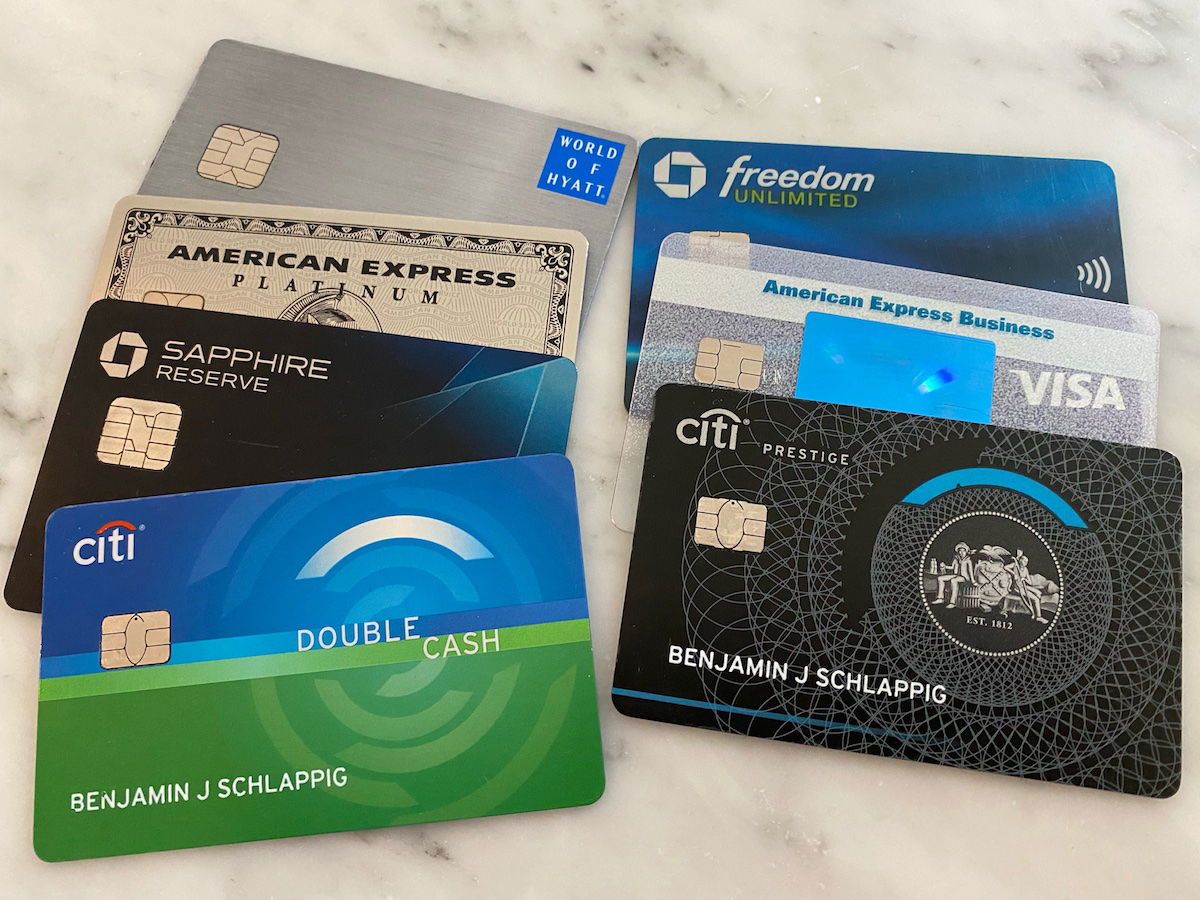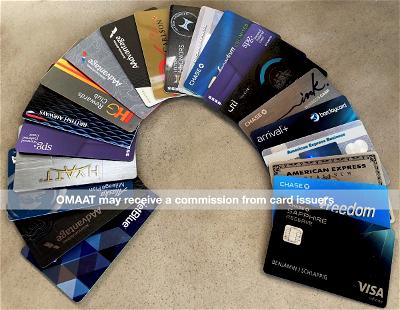For the most part, credit card applications are pretty straightforward. Off the top of your head, you hopefully know your name, date of birth, address, social security number, etc. However, perhaps one aspect of an application that’s less straightforward is sharing your income. In this post I wanted to take a closer look at that.
What should you include as your income on a credit card application? How does a credit card company verify that information? How does your income impact your approval odds?
In this post:
What can you include in your income on a credit card application?
On virtually every credit card application, you’ll be asked to share your total gross annual income. For a lot of people, this isn’t so straightforward. Should you share your income from last year, or what you anticipate to earn in the next year? Can you include household income? What types of income qualify?
As an example, let me share what Citi lists on applications, when asking for income:
Total Annual Income
Examples: Salary, wages, interest, dividends, rental income, retirement benefits. If you are 21 or older, you may include income from others that you can reasonably access to pay your bills. You do not have to include alimony, child support, or separate maintenance income if you do not want it considered as a basis for repaying this obligation.
Let me also share what Chase lists on applications, when asking for income:
Your total gross annual income is what you earn or reasonably expect to earn. If you’re 21 or older and regularly use income from others to pay your bills, you can include that too.
Alimony, child support or separate maintenance income need not be revealed if you do not wish to have it considered as a basis for repaying this obligation. If you include non-taxable income (income that you or your tax advisor has determined isn’t subject to income tax), increase that amount by 25%.The total annual income includes full-time, part-time, internships or seasonal jobs, self-employment, interests or dividends, investments, retirement, Social Security benefits and public assistance. It can include money that someone else deposits regularly into your account and income that you or your tax advisor have decided isn’t subject to income tax. (Typical examples of nontaxable income include money received from disability, worker’s compensation, child support, housing allowance, Social Security or public assistance.)
To hit on a few key points:
- The income you list doesn’t have to be what’s shown on your tax return for the past year, but rather can reflect what you expect to earn in the current year
- If you’re 21 or older, you can include your household income on an application
- Even beyond household income, if you’re 21 or older and “regularly use income from others to pay your bills, you can include that too,” so that’s pretty open ended
- If you’re under 21, you technically can’t include household income or income from family, but rather only your own, which will put many people under 21 in a tough spot in that regard

How much does your income matter on a credit card application?
To what extent does the income listed on a credit card application actually matter when it comes to getting approved for a card? Well, it’s one of many factors considered in not only getting approved for a card, but also in determining your credit limit (assuming it’s not a charge card, which has no preset spending limit).
Ultimately credit card issuers consider a lot of factors when approving people for cards, including credit score, current available credit with the issuer, average age of accounts, credit utilization, payment history, and more.
Broadly speaking, here’s my take on how income impacts credit card applications:
- Showing little or no income might make it tough to get approved for some cards, since understandably card issuers will wonder about your ability to pay off bills without certain income
- I find that the biggest implication that your income has on a credit card application is how much credit you’ll be extended; as you’d expect, someone with a $1 million income is likely to be extended a lot more credit than someone with a $50,000 income, since your credit limit is supposed to reflect your spending ability
You’d think that credit card applications would also more consistently ask about net worth rather than just income. For example, say you’re retired and have a net worth of $100 million, but the economy is bad, and you’ve lost money on investments. If you filled out an application accurately, you might have a hard time getting approved with an income of $0.

Can a credit card company verify your income?
One common question is how credit card issuers can verify the income you state on your application. The first thing to understand is that there’s no way that they can just automatically verify this. Your credit report doesn’t list your income or include access to your tax returns, so a credit card issuer won’t directly have access to that information.
Now, that’s not to say that a credit card issuer couldn’t ask you to provide proof of your income, though:
- When you apply for a credit card, a card issuer can ask for proof of income before approving you; that being said, it’s by no means common
- Sometimes credit card issuers do financial reviews, typically based on suspicious spending patterns, and in those cases they may request some financial documents
- Keep in mind that if you already have a credit card or account with a card issuer, they may already know what you’ve stated as your income in the past, so you don’t want to be totally inconsistent there
The way I view it, you should always answer credit card applications honestly. After all, you’re agreeing that the information that you’re providing is accurate.
That being said, don’t view your listed income as being something that has to be exact. If you apply for a credit card in January, it’s totally fair for you to share your projected income for the year, and it can be hard to know exactly what that will be. That’s especially true if you have your own business and don’t have a consistent salary.

Bottom line
While credit card applications are pretty straightforward for the most part, having to share one’s income is perhaps the most open-ended question. If you’re 21 or over, you can share your household income. Not only that, but you can actually share income reflecting money you’d reasonably have access to.
Always fill out credit card applications honestly and to the best of your ability, but don’t worry if your stated income isn’t right down to the dollar. After all, the application doesn’t even make it explicitly clear which income is being asked for.
How do you approach sharing your income on a credit card application?





It may not be common for them to ask you for proof of income but they often do. It also depends on the situation. For example, if you have a low credit line but want to raise it they may be willing to do so if you prove your income, if they cannot easily justify it.
In March me and my wife applied for the Wells Fargo Autograph Journey card - good income, FICO score of 818 for both of us. We both were asked to send them the last 2 paystubs to verify income, which was straightforward for my wife (drawing monthly salary), but for me it was problematic, because of my business during the first 2-3 months of the year I do not draw income. I called Wells Fargo,...
In March me and my wife applied for the Wells Fargo Autograph Journey card - good income, FICO score of 818 for both of us. We both were asked to send them the last 2 paystubs to verify income, which was straightforward for my wife (drawing monthly salary), but for me it was problematic, because of my business during the first 2-3 months of the year I do not draw income. I called Wells Fargo, explained it, so then they wanted my whole 2023 tax return faxed to them instead (from a Wells Fargo branch). Once they got it, I got approved too.
This is where the system is broken.
What's the point of having a credit history from a credit bureau if you don't trust it.
Sending in 1040 isn't as bad as asking for 4506T but equally broken.
I really like to see statistics of people with 800+ score significantly inflate income then default in a few months.
I suspect issuers can estimate an applicant's income fairly accurately based on credit history. While there might be outliers, such as the person who makes $10 million a year but declines to use any credit facilities, for most people the credit usage and income is going to have a pretty typical ratio.
As for the example of someone with $100M of assets but an investment loss in the year for which they apply for...
I suspect issuers can estimate an applicant's income fairly accurately based on credit history. While there might be outliers, such as the person who makes $10 million a year but declines to use any credit facilities, for most people the credit usage and income is going to have a pretty typical ratio.
As for the example of someone with $100M of assets but an investment loss in the year for which they apply for a credit card, I would just impute an income based on the current risk-free rate. (This assumes that the assets are liquid and unencumbered.) Today's risk-free rate is pushing 4%. So if you have $100M of assets, reporting a $4M annual income would be perfectly reasonable.
Between the lines of your reasoning is exactly why there is no clear definition of income. And the reason capitalism works, and also how it's broken by wallstreet who pushes it to the limits.
What you make just gives a credit profile bucket to put you in. As long as the money keeps moving they are just dealing with each person based on the bucket.
You pay in full? Good you are a low...
Between the lines of your reasoning is exactly why there is no clear definition of income. And the reason capitalism works, and also how it's broken by wallstreet who pushes it to the limits.
What you make just gives a credit profile bucket to put you in. As long as the money keeps moving they are just dealing with each person based on the bucket.
You pay in full? Good you are a low yield cash cow.
Carry balance? As long they convince you to keep paying, you are a risky high yield investment.
If they really want a transparent system or exact number they would leave the discretion out of the value. The same way they force your passwords to include certain criteria.
Credit Card issuers are looking at other factors besides your stated income. They know better!!
As an example, you may claim $1M income, but if you have several heavy dings (repossessed car, extreme outstanding c/c balances, prior legal awards against you, delinquent property taxes, liens against your property, IRS garnishments, bad credit score, etc), your changes are minimal or the assigned interest rate will be sky high.
Just give your best estimate on...
Credit Card issuers are looking at other factors besides your stated income. They know better!!
As an example, you may claim $1M income, but if you have several heavy dings (repossessed car, extreme outstanding c/c balances, prior legal awards against you, delinquent property taxes, liens against your property, IRS garnishments, bad credit score, etc), your changes are minimal or the assigned interest rate will be sky high.
Just give your best estimate on earnings for the year. The credit card companies already have a range in mind and you'll need to prove otherwise if you fall out of the parameters. Don't sweat it!!